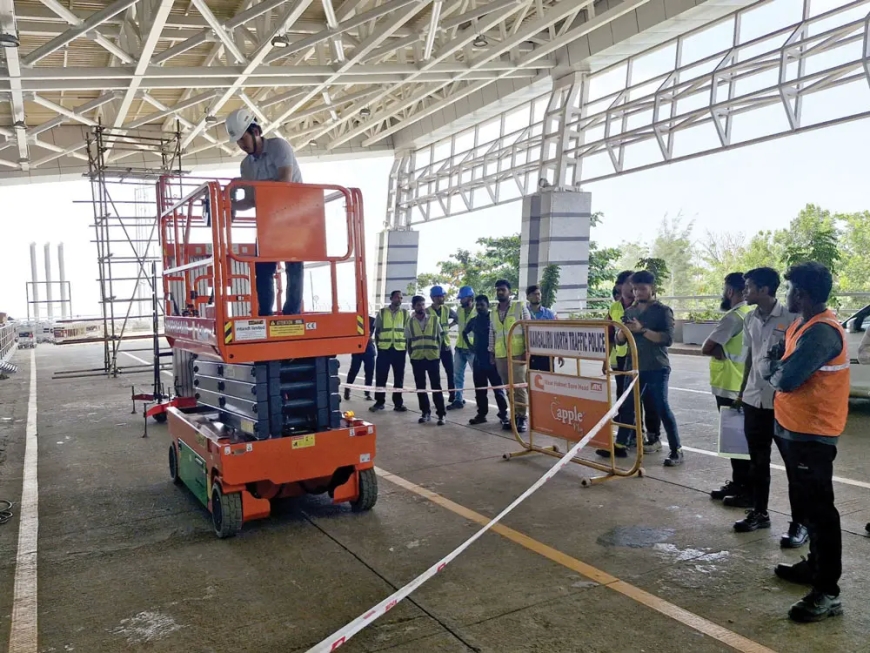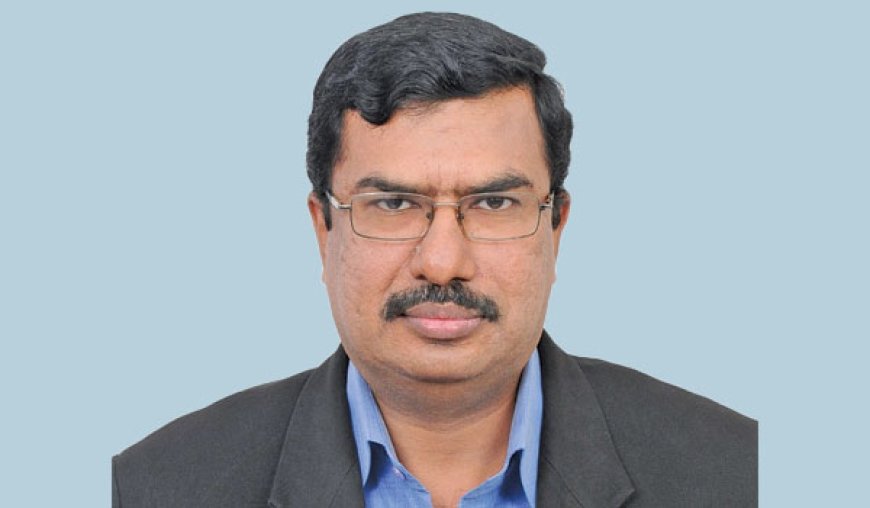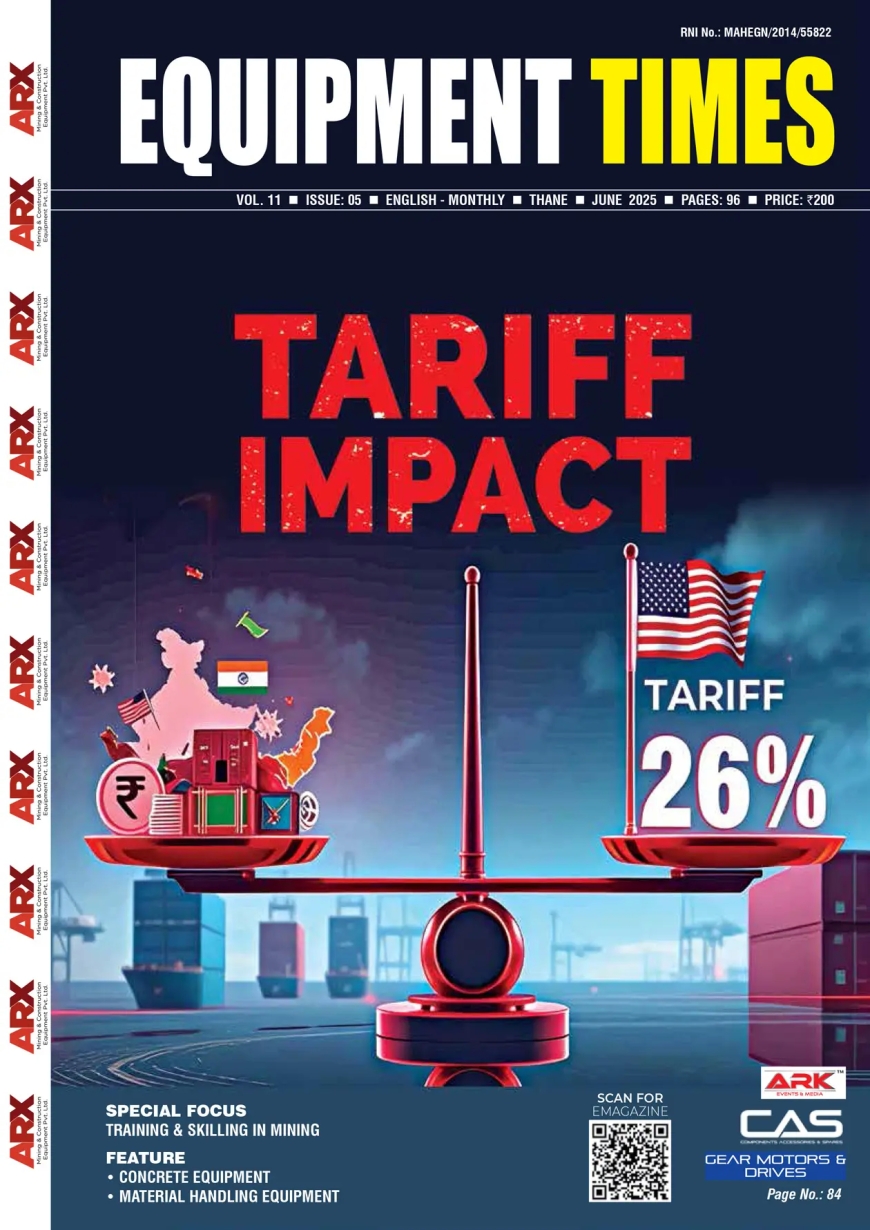NAVIGATING GLOBAL TARIFF SHIFTS: A Rentals Perspective from Mtandt Group
The recent waves of global tariff actions, particularly those arising from U.S.-China trade tensions, have once again underlined the volatility of international trade and the interconnected nature of our industry.

The recent waves of global tariff actions, particularly those arising from U.S.-China trade tensions, have once again underlined the volatility of international trade and the interconnected nature of our industry. For the construction equipment sector—where reliability, scale, and global sourcing play critical roles—these tariff shifts pose challenges but also open new pathways.
Global Impact and India’s Position
The global construction equipment market is seeing a period of strategic realignment. Tariffs on steel, electronics, and machinery components have created cost pressures and compelled OEMs and rental operators to re-evaluate their supply chains. This is especially significant in industries like ours that depend on the uninterrupted availability of spares and timely access to high-quality machines.

India, though largely domestic in its infrastructure demand, is not insulated. Many components critical to the performance and safety of equipment—like sensors, hydraulic assemblies, and control units—are still imported. With increased duties, these imports have become more expensive or delayed. At the same time, the shift is encouraging Indian manufacturers and rental companies to build deeper capabilities locally, which we view as a positive long-term trend.
Supply Chain Disruptions and Strategic Sourcing
At Mtandt Rentals, where uptime and reliability are our brand promise, we’ve experienced moderate disruptions—particularly in importing specialized parts from the U.S. and Europe. However, our proactive procurement strategy has helped us manage these challenges. We’ve diversified our supplier base, onboarded local partners for key components, and increased buffer stock levels for high-demand machines.
Our focus is now sharply aligned with de-risking the supply chain. We’re engaging more closely with Tier-2 and Tier-3 suppliers in India and Southeast Asia to ensure agility and responsiveness in our rental operations. This also aligns with our broader mission to support ‘Atmanirbhar Bharat’ by strengthening local industry linkages.
Managing Cost Escalations
We do see cost escalations—be it through tariffs, freight volatility, or global inflation on raw materials. As a rentals business, the impact of these costs must be carefully managed so as not to erode the value proposition for our customers.
Our mitigation strategy includes:
• Local sourcing and vendor development to reduce exposure to tariffs.
• Technology adoption to drive operational efficiencies and reduce service costs.
• Value-based pricing, where we work closely with customers to explain cost structures and deliver transparent value for money.
We believe cost increases must not be passed blindly onto the end-user. Instead, we are leveraging innovation, fleet optimization, and digital tools to maintain competitiveness while absorbing some of the external pressures.
Export Opportunities Amid Global Realignment
The disruption in traditional global supply chains has also opened up new export possibilities for Indian equipment manufacturers and service providers. As global companies look for alternative partners beyond the traditional hubs, Indian firms are gaining traction for being dependable, cost-effective, and increasingly technology-driven.

At Mtandt, we’re expanding our export footprint for both products and rental services. Our solutions are finding takers in Southeast Asia, the Middle East, and parts of Africa—markets that value reliability and strong service orientation, which have been our core strengths.
Boosting Domestic Demand and Infrastructure Push
One indirect but significant effect of global trade uncertainty is the renewed push for self-reliant infrastructure development within countries. In India, this translates to continued government focus on roads, smart cities, industrial corridors, and logistics parks.
We anticipate this will boost demand for aerial work platforms, scaffolding systems, and vertical access solutions. The Rentals division is prepared to support this demand surge with a ready fleet, trained manpower, and rapid mobilization capabilities across India.
Readiness and Investments
We have made significant investments in digitizing our rental fleet—equipping machines with telematics for real-time tracking, predictive maintenance, and usage analytics. This has improved our asset utilization and customer response times.
Additionally, we’re expanding our depot network and training programs for operators and service engineers to ensure scale doesn’t compromise quality. These measures position us strongly to respond to higher domestic demand without compromising service standards.
Policy Expectations
To navigate this evolving global landscape, we believe the Indian government can play a vital role in:
• Extending credit and working capital support for asset-intensive rental businesses.
• Reducing GST on rentals to bring more companies into the fold of formal equipment sharing.
• Encouraging local manufacturing of high-precision components via subsidies or PLI schemes.
• Streamlining import documentation and clearance processes, especially for essential parts not manufactured locally.
Such support would not only stabilize operations but also accelerate India’s potential as a reliable hub in the global construction equipment ecosystem.
Threat or Opportunity?
We see it as a strategic opportunity. While the tariff-induced disruptions are real, they are also driving self-correction across global markets. For Indian construction equipment companies and rental providers, this is a moment to rise—by building resilience, embracing digitalization, and delivering superior service value.
At Mtandt, we’re committed to this vision and confident that we can emerge stronger, more adaptive, and more aligned with the needs of a changing world.

Suresh Babu
CEO – Rentals, Mtandt Group








